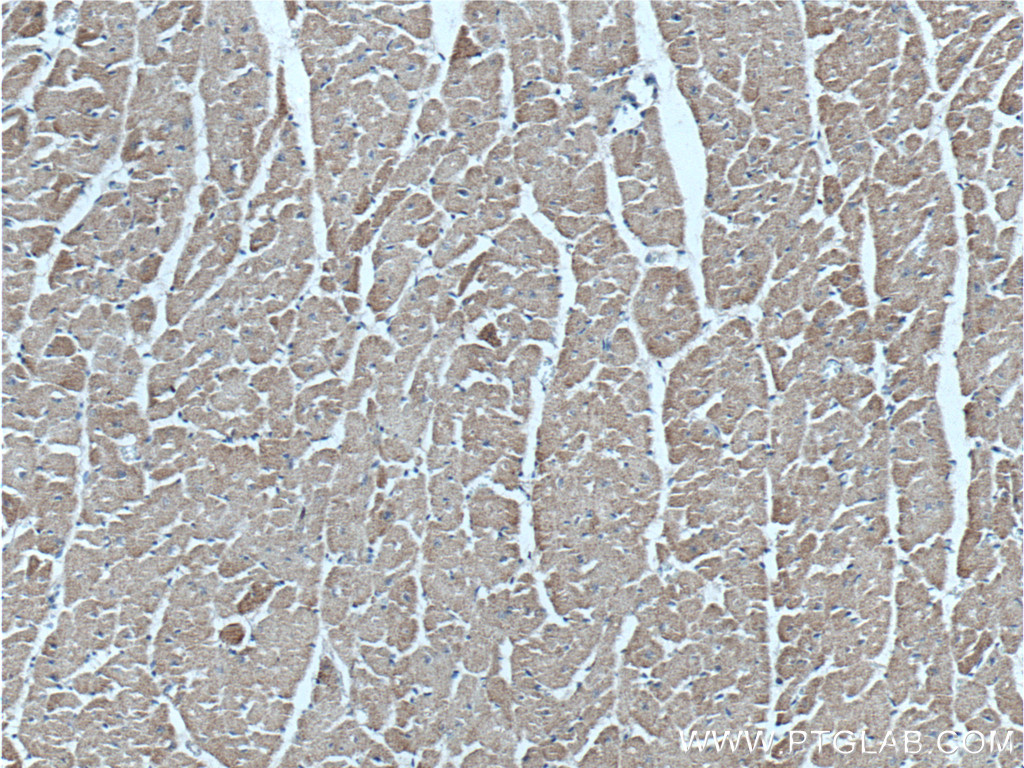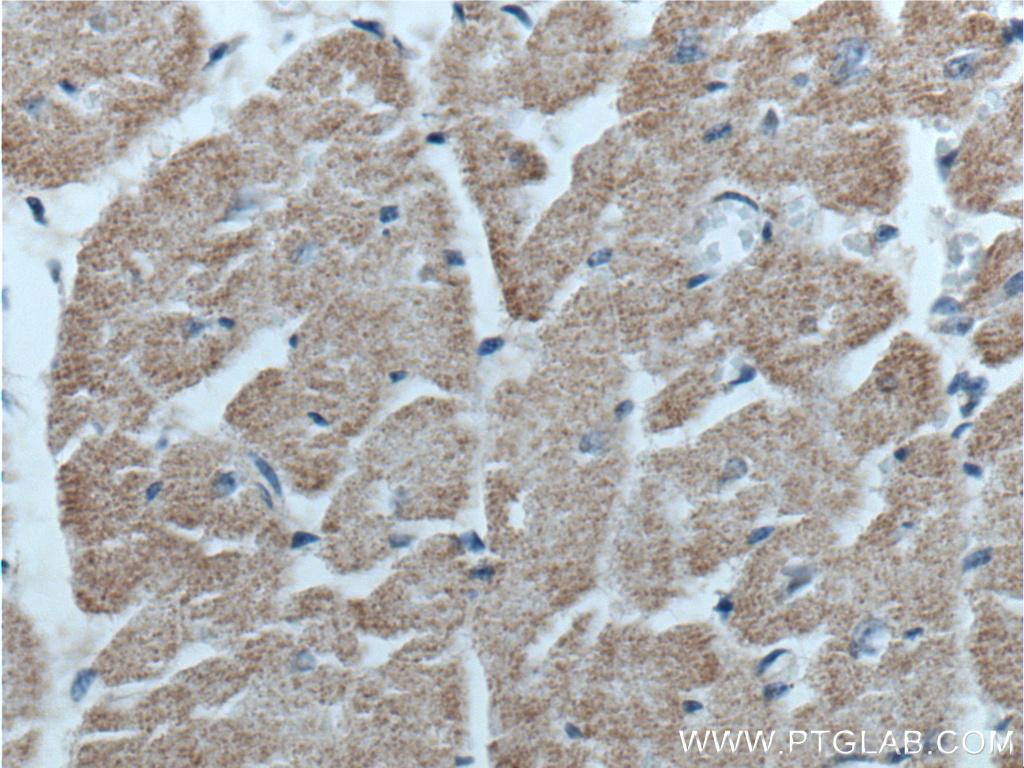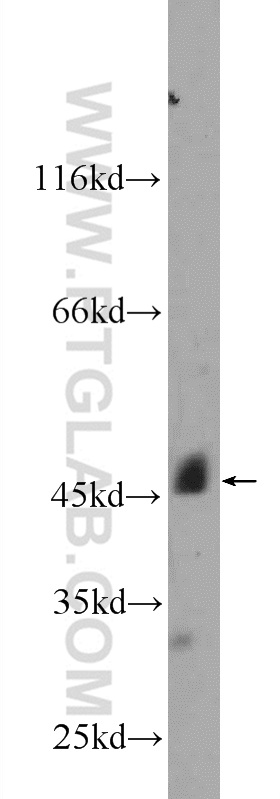验证数据展示
经过测试的应用
| Positive WB detected in | mouse heart tissue |
| Positive IHC detected in | human heart tissue Note: suggested antigen retrieval with TE buffer pH 9.0; (*) Alternatively, antigen retrieval may be performed with citrate buffer pH 6.0 |
推荐稀释比
| 应用 | 推荐稀释比 |
|---|---|
| Western Blot (WB) | WB : 1:500-1:1000 |
| Immunohistochemistry (IHC) | IHC : 1:50-1:500 |
| It is recommended that this reagent should be titrated in each testing system to obtain optimal results. | |
| Sample-dependent, Check data in validation data gallery. | |
产品信息
25379-1-AP targets GFRA3 in WB, IHC, ELISA applications and shows reactivity with human, mouse samples.
| 经测试应用 | WB, IHC, ELISA Application Description |
| 经测试反应性 | human, mouse |
| 免疫原 |
CatNo: Ag13253 Product name: Recombinant human GFRA3 protein Source: e coli.-derived, PET28a Tag: 6*His Domain: 38-379 aa of BC037951 Sequence: SRLMNSCLQARRKCQADPTCSAAYHHLDSCTSSISTPLPSEEPSVPADCLEAAQQLRNSSLIGCMCHRRMKNQVACLDIYWTVHRARSLGNYELDVSPYEDTVTSKPWKMNLSKLNMLKPDSDLCLKFAMLCTLNDKCDRLRKAYGEACSGPHCQRHVCLRQLLTFFEKAAEPHAQGLLLCPCAPNDRGCGERRRNTIAPNCALPPVAPNCLELRRLCFSDPLCRSRLVDFQTHCHPMDILGTCATEQSRCLRAYLGLIGTAMTPNFVSNVNTSVALSCTCRGSGNLQEECEMLEGFFSHNPCLTEAIAAKMRFHSQLFSQDWPHPTFAVMAHQNENPAVRP 种属同源性预测 |
| 宿主/亚型 | Rabbit / IgG |
| 抗体类别 | Polyclonal |
| 产品类型 | Antibody |
| 全称 | GDNF family receptor alpha 3 |
| 别名 | GDNF family receptor alpha 3, GDNF receptor alpha 3, GDNFR alpha 3, GFR alpha 3, GFRA3 |
| 计算分子量 | 45 kDa |
| 观测分子量 | 45 kDa |
| GenBank蛋白编号 | BC037951 |
| 基因名称 | GFRA3 |
| Gene ID (NCBI) | 2676 |
| RRID | AB_2880050 |
| 偶联类型 | Unconjugated |
| 形式 | Liquid |
| 纯化方式 | Antigen affinity purification |
| UNIPROT ID | O60609 |
| 储存缓冲液 | PBS with 0.02% sodium azide and 50% glycerol, pH 7.3. |
| 储存条件 | Store at -20°C. Stable for one year after shipment. Aliquoting is unnecessary for -20oC storage. |
背景介绍
GFRA3 is a receptor for the glial cell line-derived neurotrophic factor, ARTN (artemin). It mediates the artemin-induced autophosphorylation and activation of the RET receptor tyrosine kinase. GFRA3 has two isoforms with MW 45 kDa and 41 kDa. It can be cleaved to be a mature form with MW 41 kDa or 37 kDa.
实验方案
| Product Specific Protocols | |
|---|---|
| IHC protocol for GFRA3 antibody 25379-1-AP | Download protocol |
| WB protocol for GFRA3 antibody 25379-1-AP | Download protocol |
| Standard Protocols | |
|---|---|
| Click here to view our Standard Protocols |




